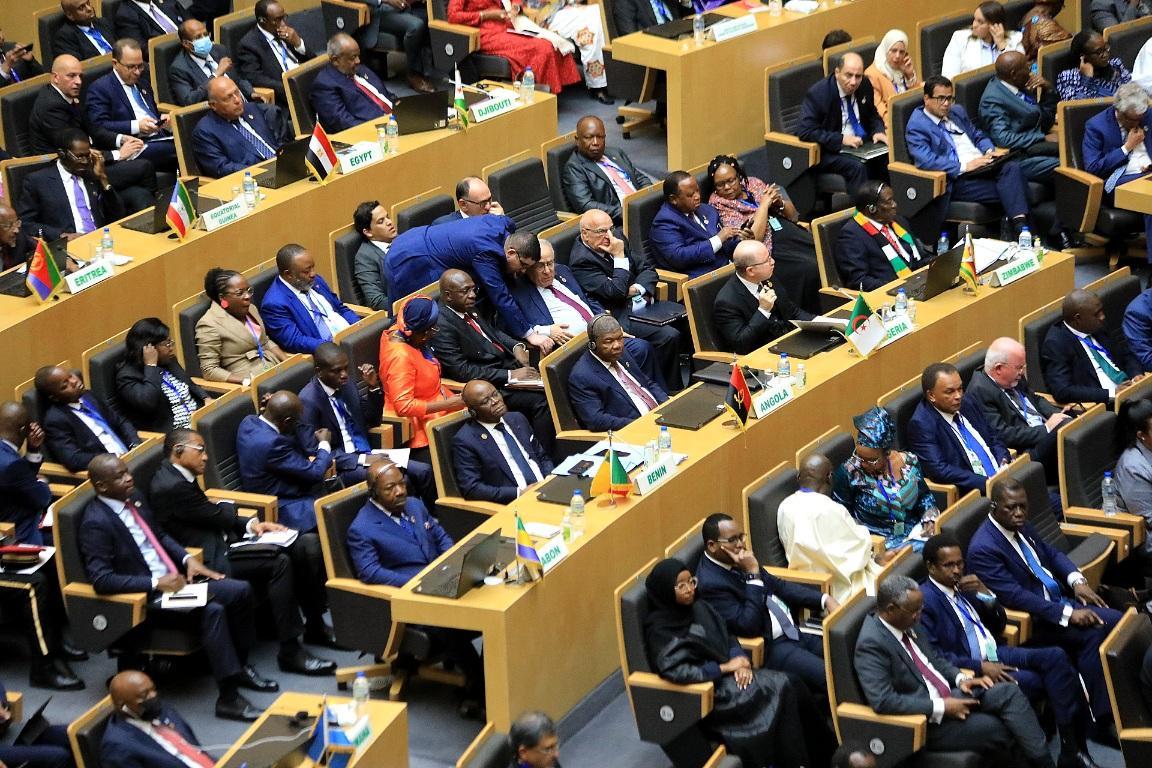By Rtd Lt Colonel Samsudeen Sarr
Africa-Press – Eswatini. As the high-stakes US–West Africa Mini-Summit unfolds in Washington from July 9 to 11, the political agenda signals a decisive recalibration in US-Africa relations. Hosted by former US President Donald J Trump, five West African leaders, Presidents Joseph Boakai (Liberia), Brice Oligui Nguema (Gabon), Bassirou Diomaye Faye (Senegal), Mohamed Ould Ghazouani (Mauritania), and General Umaro Sissoco Embaló (Guinea-Bissau), have gathered under a banner branded as a shift “from aid to trade.”
Trump’s message was unambiguously to dismantle the era of handouts, particularly through USAID, and usher in a new phase of “sustainable commercial investment.” The focus is squarely on bilateral resource deals, trade facilitation, and migration containment. In response, Africa’s visiting dignitaries offered glowing words of gratitude, some going so far as to laud Trump’s role in brokering the recent June 27 DRC–Rwanda Washington Accord, and, incredibly, even floating his name for a future Nobel Peace Prize.
But beyond the polished speeches and diplomatic handshakes, the summit has carried deeper, more complex undertones. While “economic cooperation” may headline the agenda, Washington’s deeper objective is difficult to ignore; it is to stem the tide of China’s expanding foothold across Africa, and realign the continent’s alliances in the ongoing global power contest of the 21st century.
Yet, amidst the ceremonial pomp and policy deliberations, one glaring silence rang louder than any speech, the war in Gaza.
Senegalese President Bassirou Faye, who just days earlier in France boldly condemned Israel for obstructing a ceasefire, stood mute on the issue during his White House address. This apparent omission, at a moment when the Gaza Health Ministry reports over 57,000 deaths and more than 135,000 injuries, raises troubling questions. Independent studies suggest the real death toll, factoring in indirect fatalities, could soar between 64,000 and 185,000.
So, was this silence a mere oversight? Or a calculated diplomatic posture to avoid displeasing Trump?
The timing is hard to ignore. On that very day, Trump held separate talks with Israeli Prime Minister Benjamin Netanyahu, deliberating a proposed ceasefire and hostage-release deal, with Qatar as a potential intermediary. Against that backdrop, the African silence on Gaza begins to look less like prudence and more like consent, perhaps even complicity.
Meanwhile, beneath the talk of minerals, trade, and migration, lurks a quieter, more lethal threat to Africa’s health security, the potential collapse of PEPFAR, the US President’s Emergency Plan for AIDS Relief. Launched by President George W Bush in 2003, PEPFAR has saved more than 25 million lives, primarily across Sub-Saharan Africa. Yet Trump has made no secret of his intent to shutter the programme as part of his broader “aid-shrinkage” policy.
If Africa’s leaders fail to confront this issue before the summit closes on July 11, the consequences could be catastrophic.
According to UNAIDS and the World Health Organisation, over 20 million people in Sub-Saharan Africa currently depend on US-funded antiretroviral therapy (ART). Cutting this vital lifeline would plunge the continent into a public health calamity of historic proportions, undoing two decades of hard-won progress in the fight against HIV/AIDS.
For millions of patients, ART is not optional. It must be taken daily and indefinitely to suppress the virus. Any disruption can trigger viral rebound, drug resistance, and ultimately death. Worse still, gains in preventing mother-to-child transmission would evaporate, endangering an entire generation of newborns.
Let’s be clear, low-income African nations do not have the fiscal capacity to plug this funding gap. Even with the cost of ART now reduced to around $100–$150 per patient annually, these amounts are untenable without international assistance.
Should PEPFAR be gutted, the world risks a haunting regression to the dark, deadly years of the pre-2000 AIDS epidemic, a nightmare Africa believed it had finally overcome.
Yes, it is understandable that African presidents are eager to attract trade deals and foreign investment. But diplomacy must never be conducted at the expense of human lives. A robust economic partnership with the United States cannot and must not come at the cost of silence on Gaza or the abandonment of millions living with HIV.
Therefore, before the curtain falls on this summit, the five visiting African heads of state must summon the moral clarity and political courage to raise the PEPFAR issue, directly and unapologetically, with Donald Trump. They must remind him that real leadership is not measured by how many trade deals are signed, but by how many lives are saved.
Yes, global partnerships must evolve. Yes, Africa must seek economic independence. But no geopolitical realignment is worth the price of Africa’s soul.
Let us hope our leaders will not leave Washington merely with photo-ops and platitudes, but with their dignity intact and their voices firmly raised on behalf of those who have none.
Source: The Standard Newspaper | Gambia
For More News And Analysis About Eswatini Follow Africa-Press







